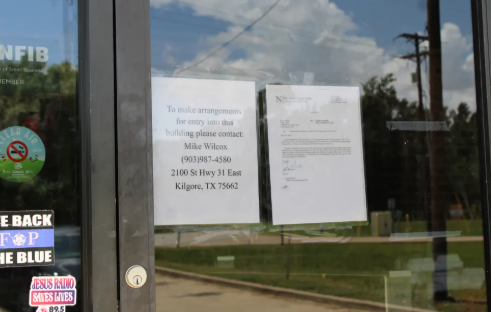Editorial: A welcome step, but grant not enough to solve region’s mental health problems
Published 11:09 am Tuesday, July 30, 2019
We know we should not complain about a federal grant being awarded to tackle the gaping need for mental health care in our region. But it is our tax money, after all, and we are feeling a bit underwhelmed.
The Health Resources and Services Administration — a division of the Health and Human Services Department — has granted $750,000 to the University of Texas Health Science Center in Tyler to establish a mental health residency program for Northeast Texas. The goal is to address the region’s shortage of mental health providers.
Trending
That sum might be enough to start a program for Tyler alone, or perhaps even for Tyler and Longview, the two largest cities in the region.
But all of Northeast Texas?
This region encompasses 35 counties where more than 1.5 million people live. Split evenly, the grant would come to about $21,500 per county. Of course, it will not be split that way, but it puts the situation in perspective.
UT says the goal is to leverage a trend of physicians graduating from residency programs and entering practice within 100 miles of their training programs. It says it hopes that means graduates of its rural program will enter psychiatry practice in Northeast Texas.
But the grant fails to address the second half of that equation: There are few health care institutions in the region where those doctors could practice, a dwindling number of medical centers and clinics and a lack of mental health hospital beds for them to work with.
Do not misunderstand. This $750,000 grant is the most that has been done in our memory to try to solve this problem. As inadequate as we might feel the amount to be, it is nonetheless a step toward delivering needed services to East Texans.
Trending
Once it has started, there is always the possibility more funds will be forthcoming to support practices across the region, or even that more mental health professionals will see fit to locate into Northeast Texas on their own.
That last wish is more of a dream. Doctors of all specialties quickly discover there are more lucrative opportunities in big cities. We cannot reasonably expect many to give up more income just because we need their services.
Still, the needs here are critical. More than half of the 35 counties in our area do not have even one local psychiatrist, or have a psychiatrist-to-population ratio of greater than 1-to-2,500.
We would guess that fact is linked to another sad statistic. The suicide rate in Northeast Texas is 17.5 per 100,000 persons. Statewide, the average is 12.2 per 100,000. Those are nothing but numbers, however. Behind each of those suicides is a story of misery and the pain of a family dealing with it.
Suicide is only one of the problems that arise from poor mental health. Most of the ill are, thankfully, not driven to suicide. But lives of despair or confusion may make it difficult to hold a job, to be a successful parent or even just interact normally in society. Also, people in those positions often self-medicate with alcohol or drugs, giving them yet other problems to overcome.
These are all factors that can often be eased or reversed by a mental health care provider.
If you are one who must see a return on investment to support mental health, think of the savings in disability payments or other forms of government assistance. Think of the lessening of drug crime. Think of the reduced local costs for the jails and courts that most often wind up dealing with untreated mental illness. All of it goes together.
We appreciate the $750,000, but we want all involved — local, state and federal leaders — to understand this is only one step toward erasing the deficit in Northeast Texas.
Other steps are being taken, but for this grant to have impact the next ones must be in consideration now.
— Longview News-Journal







